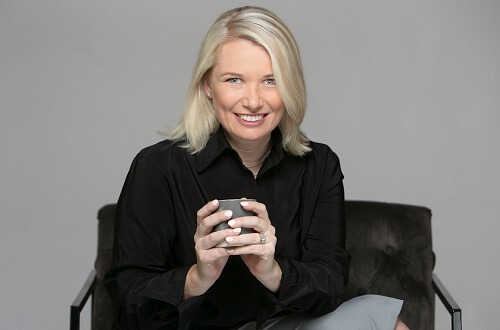
By: Lisa Linfield, a board Certified Financial Planner and entrepreneur, CEO of Southern Pride Wealth and host of the podcast Working Women’s Wealth
I’m one of those entrepreneurs who other people struggle to fit into a nice neat little box. I have spent 20 years employed at big corporates, and certainly don’t fit the box of a ‘born entrepreneur’.
I have extensive management experience in running businesses – but within the broad safety net of a corporate with cash flow. So, like many (entrepreneurs), I’m new to cash flow management – the lifeblood of any business.
I started two new businesses in my first year of operation. Like everyone out there, I have also hit walls when it comes to the big and small decisions in my business. The hardest thing about being an entrepreneur is carrying all the decisions by yourself.
The tough decisions I have had to make as an entrepreneur include deciding:
- Should I invest in buying a business to kick-start my growth and build scale?
- Should I spend my time on Facebook ads to sell my courses or spend my quickly depleting capital, I so diligently saved, to hire an agency?
- Why do I struggle [placing value] on my services? Why do I keep offering it for free or discounted?

At different times I [have found] different solutions to help me navigate these questions.
Seeking guidance
Last year I benefited enormously from being a part of a group coaching setup with [other] like-minded entrepreneurs. They helped me think things through, and change course on a deal I’d been working on for over a year.
My decision to walk away [from the deal] has got to be one of the hardest, yet one of my best decisions I’ve made. Not only did it save me much heartache, as doing the deal would have been so detrimental to my vision, it saved me a fortune. I don’t think I would have got to the clarity I needed without the coaching I received.
The hardest thing about being an entrepreneur is carrying all the decisions by yourself
When I was struggling to decide on a fee for my services, I sought out a coach to help me think it through. In essence, I was continuously discounting my service because I struggled to separate Lisa the product from Lisa the human. This is an issue I never really needed to worry about when I worked for a corporate and was selling a product that wasn’t me.
Finding the right support system
Many people ask me, “When should I seek a coach, group coach, financial coach or financial adviser, and how do I know which is right for me?”
Let’s start with the second half – how do you know which is right for you? Like anything in life, whether it’s a financial coach or a financial planner/adviser, it’s about chemistry and shared experience.
People choose me for many different reasons: mostly based on a recommendation, they feel we click, or shared experiences as I was in the corporate world for a long time, and went on to start two businesses. I was once given a great piece of advice: you need to date a few coaches or advisers to choose one!
They’ll help you understand the choices available and provide content knowledge to support your decision making
Now, how do you know whether you need to see a generic coach, financial coach or financial adviser or financial planner?
Unless you already have a relationship with a financial adviser who embraces financial planning, a financial or business coach that you pay by the hour is probably your best bet. They’ll help you understand the choices available and provide knowledge to support your decision making.
Once you’re out of the hockey stick of sinking money into your business, and starting to generate profit, a good financial adviser will help you navigate the choices of defining and investing for your best life.
A good group coaching or mastermind program that is facilitated by a financial or business coach will enable you to learn from others as well as have the input of an expert.
When you should seek help?
- When you are struggling with a decision and you are tired of the noise in your head.
- When you don’t have enough information to make a decision (that’s where a financial coach is better than a traditional coach as they are equipped with financial knowledge and experience).
- When you observe thinking or behaviour that isn’t serving you to live your best life, or your business. At its extreme, it’s called self-sabotage and you think, “Err… why do I keep doing that!”
- When you and your business partner or life partner can’t have the discussions you need to have. I get this especially when one partner is the entrepreneur investing their joint savings into the new business and the other is working to keep food on the table. The one working to put food on the table deeply wants the other to keep their hands out the financial cookie jar!
From my perspective, more often than not an entrepreneur just starting out needs a financial coach more than a financial adviser.
The reason being is that for many it’s the first time they’re having to make all the financial decisions. Should they invest in hiring someone to do their social media or should they hold onto the cash flow themselves? Should they hire someone to help or do it themselves? How do they manage cashflow?
So having a financial coach is more like having your own financial director to help you think through these issues of how to use your capital wisely. They may also advise on how to source funding if this is their field.
Regardless of which support system you choose to help you think through decisions, I’ve always found that having a great thinking partner is worth it every time. I’ve had many coaches with very different techniques – and all have helped me navigate decisions that have had significant financial and personal impact.
About the author: Lisa Linfield is the CEO of a wealth and investment management business Southern Pride Wealth. She is a personal finance expert, keynote speaker, course creator and host of her podcast Working Women’s Wealth. With over 20 years of financial services experience in the UK and South Africa, Linfield is a board Certified Financial Planner (CFP). Her courses – Business School for Startups, Tech for Startups and Finance for Startups – help support early stage entrepreneurs get their businesses running.






